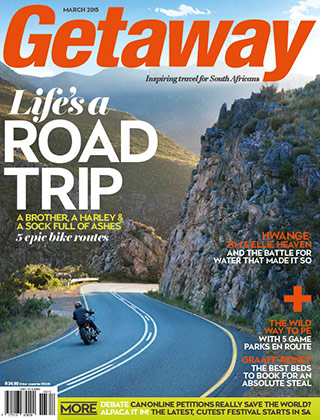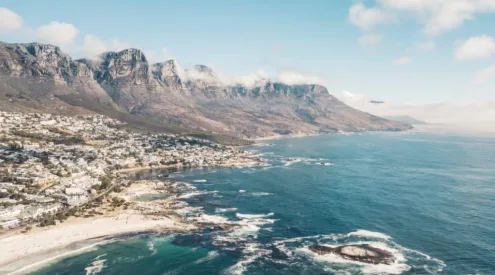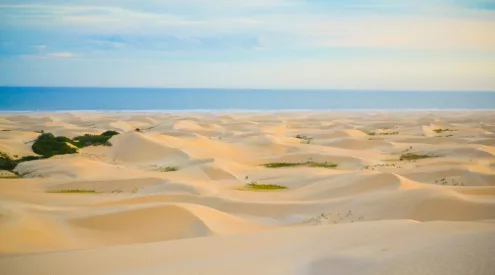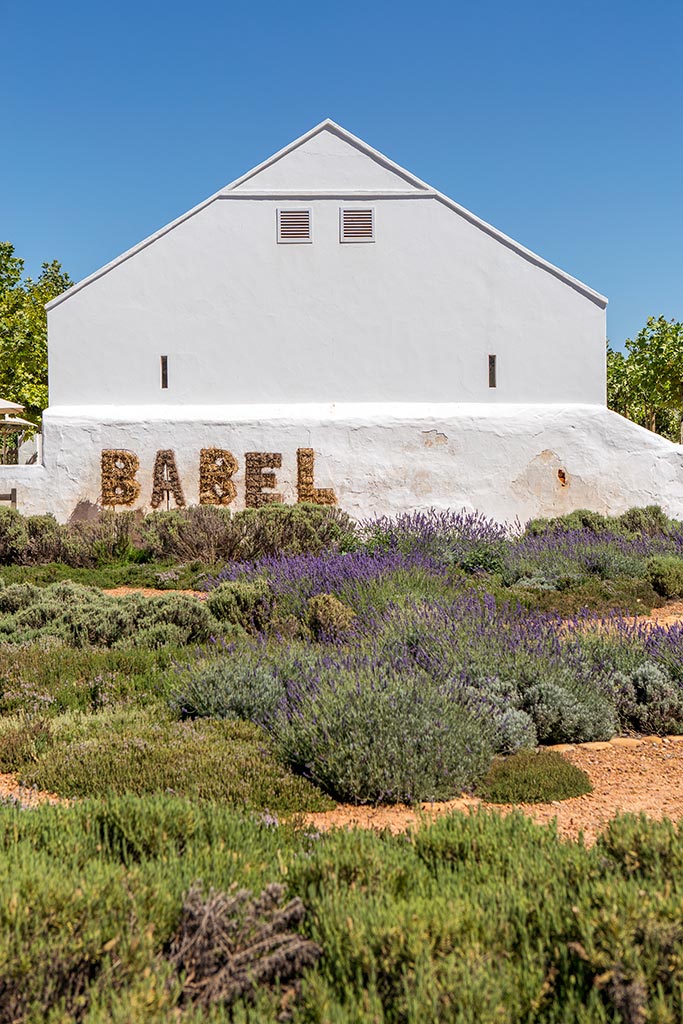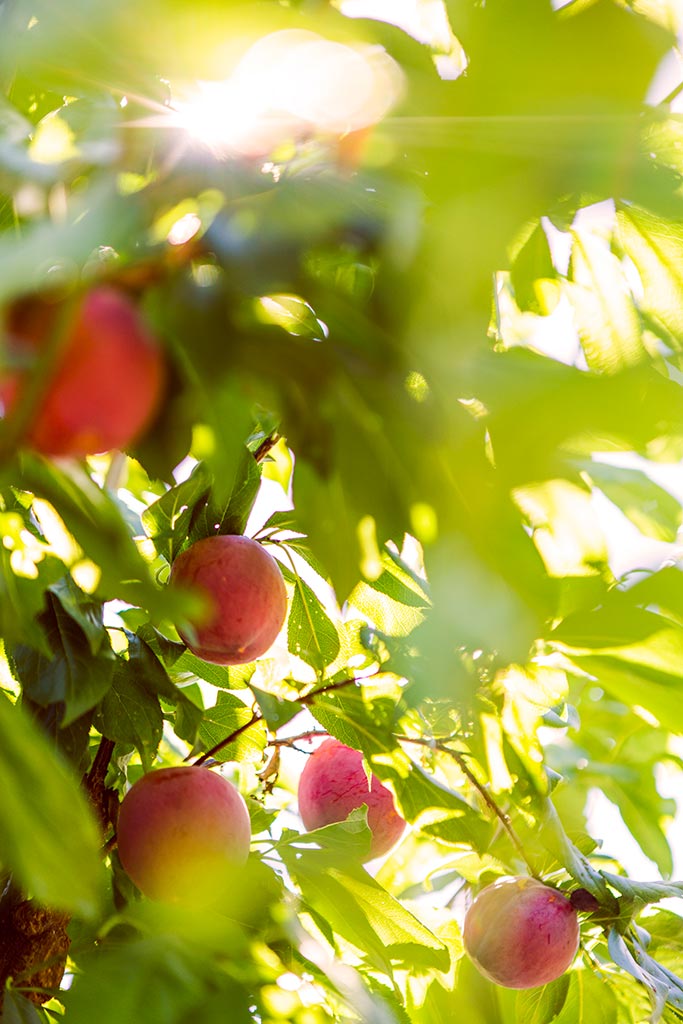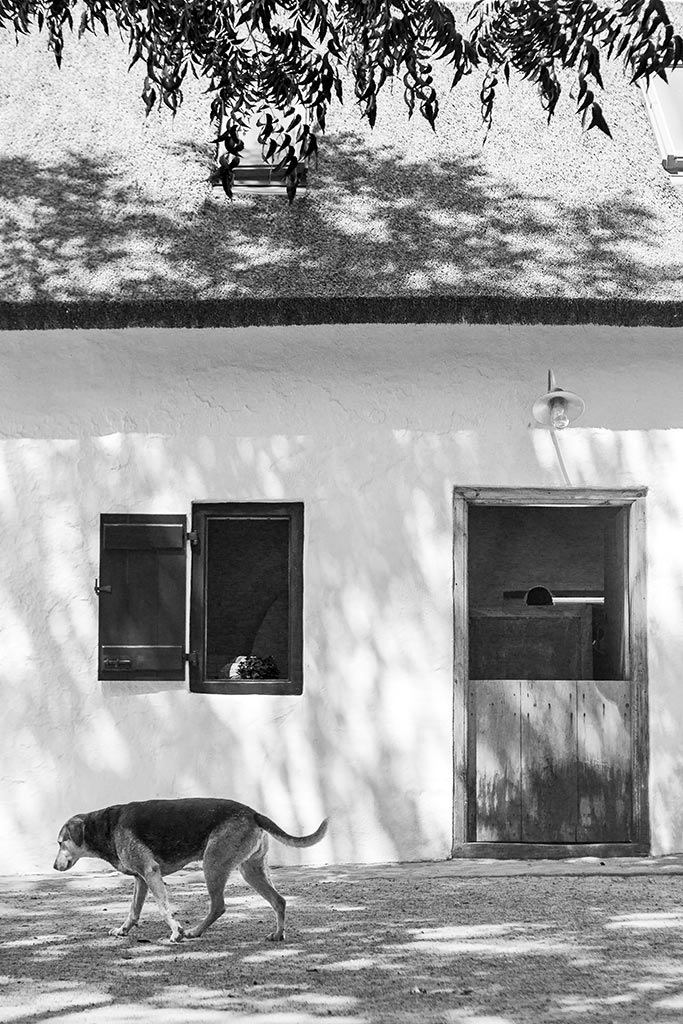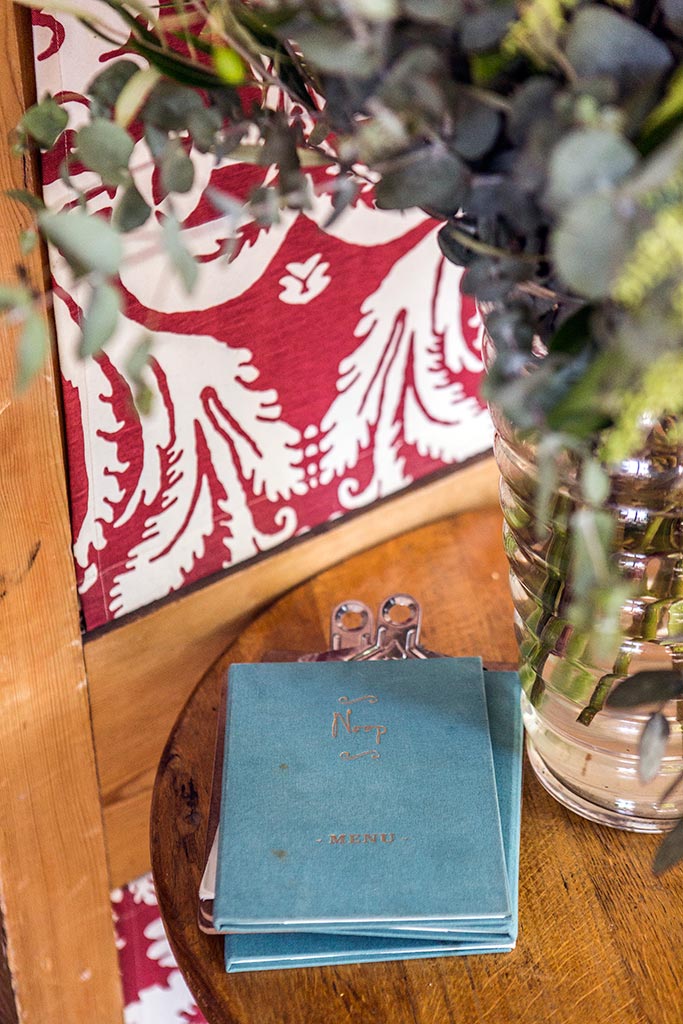Fred Hatman comes to new conclusions in Paarl, the Cape’s old, unassuming winelands town. Photos by Teagan Cunniffe.
Please note: we’ve included the prices, as a guideline – but although they were correct at time of travel, they’re liable to change at the owner’s discretion. Please confirm with individual establishments before booking.
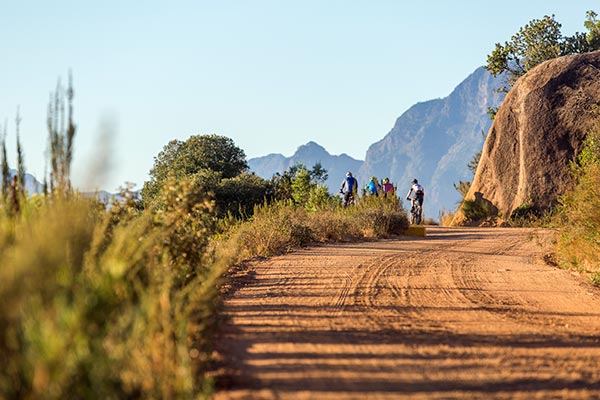
Paarl features adventure activities in abundance, among them several mountain-biking trails for beginners through experts.
I remember a family holiday, in 1973, when my father drove us down to the Cape from Pietermaritzburg in our beige Chevrolet sedan. It was magnificent (the holiday, not so much the car. In my dad’s defence, he didn’t have a plastic orange stuck on the aerial). I have three clear memories from that high-school boy adventure to the then Cape Province.
The first was zooming down sand dunes on pieces of corrugated iron with Anthony Maguire at the Nahoon River mouth in East London. That was fantastic. Two: shaking and clattering up to the very top of Table Mountain in the old cable car. That was also fantastic, even though my fear of heights was manifested there and then. My third powerful recall is of driving back to Natal past Paarl. My father pointed to the top of a mountain on the left. ‘Look, they’re building the Afrikaans Taal Monument,’ he said.
I peered out of my window at concrete fingers beginning to point to the heavens and remained quiet, wondering why? My sister was never quiet.
‘What’s that, Dad?’ she asked, excitedly.
‘It’s a monument to the Afrikaans language, dear.’
I remember thinking it odd that a monument should be built to celebrate a language: a language that, in the ‘Last British Outpost’ of Pietermaritzburg, I only ever heard spoken by the schoolteacher in charge of that particular subject. And very occasionally by boys from Voortrekker High School, against whom we played cricket and rugby twice a year. I soon came to view the Taal Monument as a reinforcement of everything held dear by the nationalist government.
So, my first thought, when I was asked to write a guide to Paarl, was to visit the Taal Monument in a bid to better understand it. I felt quite heavy as I urged my old Mercedes up the mountain. A fellow in a very bright shirt manned the security boom and I was quite certain he would introduce himself brusquely as Frikkie before growling that donderse Engelsmanne were not welcome. Old prejudices die hard.
‘Morning meneer,’ he said cheerfully, offering his right paw through my half-opened window. ‘My name is Howard’.
You could have knocked me over with a feather.
‘Hi, I’m Fred.’
‘Ah, Fred. Isabeau is expecting you at the Visitors’ Centre. Let me show you how to get there.’
I thought it was a ruse, an elaborate attempt to kidnap and punish me for my occasional dark mutterings about the Blou Bulle and Steve Hofmeyr.
Isabeau Botha, the Taal Monument’s marketing manager, emerged from the Visitors’ Centre with a huge smile and a warm welcome. In English. I blinked. And breathed. And then spoilt any mutual feel-good by chopping out my best KwaZulu-Natal Afrikaans. She giggled politely and introduced me to Veronique Hendriks, who was to be my tour guide.
Veronique was delightful, very well informed and incredibly passionate about her home language and the monument that loomed above us, rising into the overcast skies. We skipped sensitively through the uber-trendy photoshoot being held in the cool heart of the structure and Veronique pointed to the three mounds which stud the east side of the open podium.
‘These symbolise the huts of the Khoi, Nguni and Sotho peoples,’ she said, ‘and represent the influence their languages had on Afrikaans.’
‘I had no idea.’ I said.
She laughed and continued, ‘Do you know, when this monument was inaugurated in 1975, some leading white Afrikaans writers threatened to boycott the event, at which the dedication speech was to be delivered by the then prime minister BJ Vorster, if coloured writers were not also invited?
‘And,’ said Veronique, ‘Adam Small’s poem Nkosi sikelel’ iAfrika was recited at the ceremony.’ Someone from the fashion shoot needed help from Veronique, so it gave me a chance to scramble up the path behind the monument and stand between the mammoth boulders and contemplate the spires from a slightly higher elevation. These sculptural slivers of hard rock are directed at the heavens and, while I cannot declare that I feel a personal affinity with them, I came to the understanding that they were erected as an expression of pride in a culture that had once been threatened with marginalisation in the country so beloved of a people whose home is so inextricably here.
I felt somewhat reconciled with it. This winelands town, with its massive monument to Afrikaans, I think is greatly misunderstood. It is frequently overlooked in favour of the refined salons of Franschhoek, and Stellenbosch’s leafy avenues of learning, with its gourmet eateries, sleek art galleries and please-see-me pavement cafés. It’s unfair to a beautiful town that retains its earthy, we-are-actually-here-to-make-good-wine feel, and has excellent restaurants, art galleries and coffee shops that hold their own anywhere. There are also beautiful hikes and trails in the nearby nature reserves.
It has it all, does Paarl. And I realised that it was not just the Taal Monument that had turned my Anglo-South African perception on its head. The places I went, and the people I met, carried a confidence that this old Boland town has taken its place alongside its formerly more illustrious neighbours, without being too pleased with itself. As I drove home, feeling happier and lighter, and enlightened by my first-hand knowledge, I allowed my nose just the slightest upturn when I cruised through fancy old Franschhoek.
Plan your trip
Getting to Paarl
From Cape Town, drive straight up the N1 and, after 61km, take Exit 55. Turn left at the stop street and you’re in Paarl’s Main Street. From Franschhoek, take the R45 for 35km. From Stellenbosch, it’s just 32km on the R44 and is a mere 14km from Wellington on the R44 and R45.
What to do in Paarl
1. Seek out some lesser-known wine farms
KWV and Nederburg are also here – but the lesser-known wine farms such as Mellasat, the home of white pinotage (ask British owner Stephen Richardson to explain how that came about). A spaceship’s throw from Mellasat is another gem, Olsen Private Vineyards. Why spaceship? In 2005, owner Dr Greg Olsen, an American entrepreneur, engineer and scientist, became the third private citizen to zoom up to the International Space Station. And he took daughters Kimberly and Krista up for the ride. Mellasat, Olsen and numerous other smaller estates form Paarl Wine Route’s Off The Beaten Track Journey. Look out for its recently launched routes.
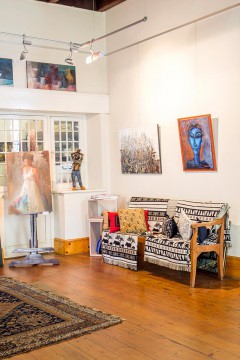
Hout Street Gallery has a marvellous array of quality art.
2. Check out the art at Hout Street Gallery
The Hout Street Gallery is fronted by a shop cram-packed with all manner of ceramics and crafts, and a pleasing variety of good art in the back rooms. I was drawn to several works, but Ryno Swart’s The Violinist pulled me close. Delicate, soft and sensual, Swart’s violinist invited me into her world of strings and the sweet notes swept out on them. Paarl boasts several good galleries, the De Kraal Gallery & Studio, Glen Carlou Art Museum and the Orange Mill Art Gallery among them, all well worth a visit.
3. Head to Babylonstoren
Babylonstoren is where you’ll find a a multi-sensory experience on a wine estate owned by former Naspers boss Koos Bekker and his wife, ex-editor of Elle Decoration Karen Roos. Its pristine three-hectare garden has more than 300 types of plants (all edible) and a top-quality restaurant, Babel.
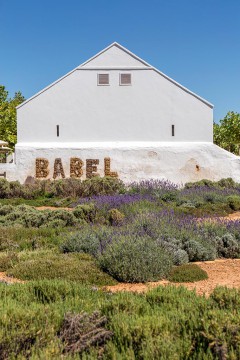
Babylonstoren is a must-do for any visitor to the Boland, with its fabulous Babel restaurant.
4. Picnicking at the Taal Monument
This doesn’t have to mean boiled eggs and blankets. The Taal Monument has a whole series of events geared around outdoor eating. There are picnic concerts, picnic movies, theatre picnics, full-moon picnics, stargazing picnics and even fire-dancing picnics. Hiking trails, exhibitions, heritage projects and a number of workshops and educational programmes are also offered.
5. Hike the trails
There are lovely trails in the nearby Limietberg Nature Reserve and Paarl Mountain Nature Reserve, and for adrenaline addicts, abseil down Paarl Rock.
6. Visit Het Gesticht
In Main Street, the beautiful little church of Het Gesticht was built in 1813 as a place of worship and community for slaves, and now a monument.
7. Wander through Frater Square
Frater Square is a shopping centre born out of an old pack shed built in 1845. The foot flow takes you past usual suspects such as Primi Piatti, hair salons, travel agents and dry cleaners but also Melissa’s The Food Shop (and top-notch coffee shop), a Parisian-styled clothing shop, Wild Orchid, a decor shop called Blanc de Blanc and a wine store named The Thirsty Cyclist.
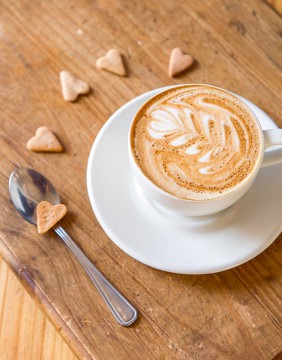
Paarl abounds with good coffee shops with Bean In Love, a light, airy space converted from a church, foremost among them.
Where to eat in Paarl
1. Kikka
This eatery in Main Street has an arty and retro feel, with stylish sofas, bleached wood tables and groovy paraphernalia.
Contact: Tel 021 872 0685
2. Bean In Love
You’ll find this further north up Main Street. Once an old Baptist Church, Werner Pauw has converted it into a sleek and modern two-level space serving excellent coffees and lunches. The shop also sells its own range of sweets, among them old South African favourites.
Contact: Tel 021 872 0987
3. Tea Under The Trees
Even further north on the main drag, Tea Under The Trees delivers exactly what its name suggests.
Contact: Tel 082 825 5666
4. Juno Bistro and Bakery
This is a breakfast and lunch spot which is hugely popular with the locals and exhibits Tertia du Toit’s art.
Contact: Tel 021 872 0697
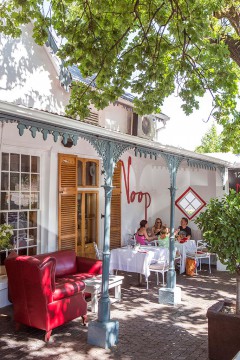
Zian Oosthuizen’s passion for creating superb and unique dishes draws in the foodies at Noop, not least to its shady and homely veranda.
5. Noop
Noop has a good balance of South African staples and more adventurous dishes. If it’s true that passion creates fine food, then Zian Oosthuizen and girlfriend Mariëtte van den Bergh, both zesty twenty-somethings, will never go wrong. The couple took over this Main Street eatery in 2012 and brought their boundless passion for cooking with them. This restaurant also features on Daddy’s Deals new blog that covers the top a handy guide to some seriously good restaurants in Paarl.
Contact: Tel 021 863 3925
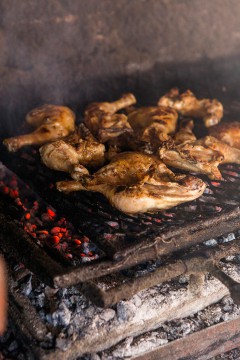
The braais at Chippa’s Place turn over an astonishing amount of delicious meat dishes but there is so much more to be enjoyed here.
6. Chippa’s Place
This is the place to be if a beer and a chop is more your thing. Drive out towards Wellington and to Mbekweni township where you will find it quite easily if you ask a resident for Chippa’s Place. I was lucky enough to find Chippa Mlata himself. After being squeezed out of the airtime-selling business by bigger operators he decided to open a small butchery with a restaurant attached. It now has a dancehall (live DJs on tap), a braai area, a bottle store, an open-air eating area and a number of chill-out lounges. Do try it.
Contact: Tel 082 454 0585
7. Moksh
Moksh is legendary for curry. On my last night in Paarl, I booked a table there. Eskom had also booked that night for a spot of load shedding. No matter. The tables were moved out into the cobbled courtyard behind the restaurant where the moon shone benevolently upon us while candles lit up the kitchen as the cooks worked feverishly. Moksh was a joy. I can’t recommend it highly enough.
Contact: Tel 021 872 4548
Also read: Check out some must-try restaurants in Paarl
Where to stay in Paarl
1. Rodeberg Lodge
Rodeberg Lodge is a charming Victorian house and national monument is cosy, comfortable and unpretentious. It’s also right on the Main Street, a short walk from fine restaurants. The breakfasts are excellent and the shade offered in the leafy garden on a hot Paarl day a source of great relief and pleasure.
2. Berg River Resort
Berg River Resort is great for camping and caravanning. Despite not staying there because of strong winds (too strong for my caravan), I popped in there to see what I had missed. Quite a lot of swimming, it turns out. Not only in the river, which would have been a delight in the heat that squats in the Paarl Valley, but there is an Olympic-size pool, too. If caravanning and camping aren’t your thing, there are family chalets with kitchens or cooking facilities (and, of course, a braai).
3. Grande Roche Hotel
Grande Roche Hotel is a must for luxury. There are four styles of accommodation (studio, terrace, garden and duplex) set in an immaculate garden on a working wine farm. Five-star amenities are complemented with great views of the mountains.
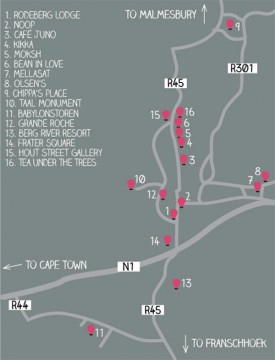
Fred’s article first appeared in the March 2015 issue of Getaway magazine.
All prices were correct at time of publication, but are subject to change at each establishment’s discretion. Please check with them before travelling.
